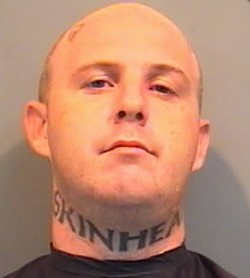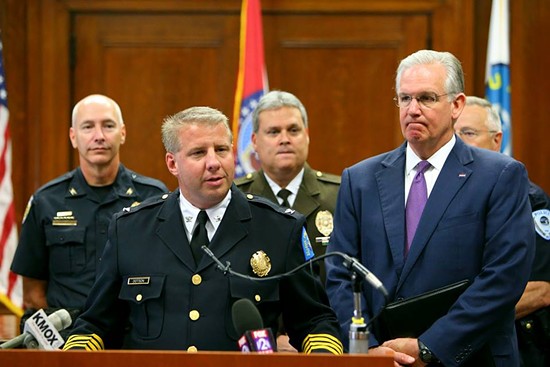
Next week, in addition to an intense showdown on controversial gun legislation, Missouri lawmakers will have an opportunity to enact a bill that would remove hundreds of sex offenders from the state's online registry. In order to implement this proposal, lawmakers must override Governor Jay Nixon's veto and go against the recommendations of St. Louis law-enforcement officials, victims' rights advocates and other stakeholders.
Supporters of the bill -- which would allow some in the state to lose the permanent sex-offender label -- are now organizing in favor of the proposal, arguing that the registry is way too broad and unfairly ruins lives of those on it.
Women Against Registry, an advocacy group run by a Missouri woman, makes the case that public sex-offender registries are fundamentally flawed and should not exist at all.
See also: St. Louis Police Don't Want Hundreds Taken Off Sex Offender Registry
House Bill 301, the group says, would be a step in the right direction.
"Once a person has been adjudicated and they have paid their debt to society and are living a law-abiding life, they should not be on public display or what we call a 'hit list,'" Vicki Henry, director of the group, tells Daily RFT. "It's even worse for juveniles to be on the list."
"Are you the same person you were when you were sixteen or fourteen?" she continues. "Nobody is."
Henry is a retired woman who lives in Festus and has been an advocate against public sex-offender registries for several years, she says. She explains that she has a family member who has been impacted by the registry.
As we've reported, the bill in question would allow individuals who committed sex offenses as juveniles to have their names taken off of the state and county notification sites -- and would also prevent any individual in that category from being placed on the registries going forward. A central argument of Nixon -- full veto message here -- is that the law does not draw a distinction based on the severity of the crime, such that a teenager guilty of a violent rape could have his name cleared.
The governor estimates that about 870 people would be immediately removed from the registry under the legislation.

The official stance of Women Against Registry is that offenders deserve second chances and that registries designed to monitor individuals should exist only for law enforcement agencies and not the general public.
Registrants become targets, Henry argues. "Some people have had their houses set on fire. They've had their vehicles damaged. They've had their properties damaged."
She has sent Daily RFT four news stories from across the country to bolster her case: A sex offender beaten to death in Baltimore reportedly by attackers angry about his alleged offense; a South Carolina homicide suspect who was allegedly targeting multiple sex offenders; a Washington State man who, cops say, "had planned to keep killing sex offenders until police stopped him"; and a ten-year-old girl accused of raping a four-year-old boy in a game of doctor (who could possibly be placed on an offender list).
"Everybody assumes that someone on the registry is a rapist," Henry says, noting that there are all sorts of more minor offenses that can land suspects on the list.
She also says registries give communities a "false sense of security."
"They are telling you that these are the ones you need to be afraid of," she says, arguing that a majority of sexual abuse comes from within the family or from someone known to the victim's family and that recidivism rates are generally low. "We need to back up and teach parents about safety and prevention."
Victims' rights groups, of course, have a very different take. The Survivors Network of those Abused by Priests (SNAP), a St. Louis-based advocacy group opposing the legislation, said in its statement last month, "Taking offenders' names off the registry could easily lead to more assaults against children."
The bill could potentially have an override vote on September 11 next week.
Here's the full legislation in question and Nixon's veto message, which outlines his opposition in detail.
Send feedback and tips to the author. Follow Sam Levin on Twitter at @SamTLevin.


